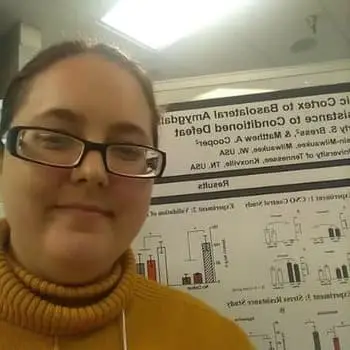Dual diagnosis treats co-occurring substance use disorders and mental health conditions.
Addiction can sometimes manifest by itself, but it often shows up with other mental health conditions. When addiction and a mental health disorder coexist, it is called a dual diagnosis. Each condition affects the other, and thus dual diagnosis treatment can be challenging. The Recovery Village Palm Beach at Baptist Health can help you initiate dual diagnosis treatment and help you locate dual diagnosis treatment centers in Florida and other locations around the country.
What Is Dual Diagnosis?
You may have heard the combined presentation of substance use disorders and mental health symptoms referred to as co-occurring disorders with a dual diagnosis being a synonym for the phrase, but what is dual diagnosis, and why is it important to know if you have a co-occurring disorder?
Dual diagnosis refers to the state of having been — or potentially being — diagnosed with a drug or alcohol addiction and a mental health disorder simultaneously. If this description fits you, you are not alone. The Substance Abuse and Mental Health Administration estimates that over 8% of the population in the United States have a co-occurring substance use disorder and mental health condition.
Treatment Can Be Life Changing. Reach out today.

It is of critical importance to identify a dual diagnosis when it exists because such a condition can negatively affect treatment if it is not addressed in a dedicated dual diagnosis rehab. Due to increasing public awareness of the impact of dual diagnosis on recovery, higher numbers of dual diagnosis programs exist now than ever before, and people are getting treatment for both conditions.
Common Dual Diagnosis Disorders
Though not a comprehensive list of all mental health conditions, certain types of disorders are frequently encountered in dual diagnosis.
Conditions that commonly co-occur with drug and alcohol addiction include:
- Anxiety disorders
- Generalized anxiety disorder (GAD)
- Obsessive-compulsive disorder (OCD)
- Post-traumatic stress disorder (PTSD)
- Social phobia
- Attention-deficit hyperactivity disorder (ADHD)
- Bipolar disorders
- Depression
- Eating disorders
- Personality disorders
- Avoidant personality disorder
- Borderline personality disorder
- Dependent personality disorder
- Narcissistic personality disorder
- Schizophrenia
Who Qualifies for Dual Diagnosis Treatment?
While identifying the origin of a symptom can be difficult, or even impossible, identifying proper candidates for dual diagnosis treatment is more straightforward. Anyone who struggles with a diagnosed mental health condition and a drug or alcohol addiction has co-occurring conditions and can receive dual diagnosis treatment. If someone hasn’t been diagnosed with a mental health issue but struggles with psychological problems, they may still receive dual diagnosis care.
In recovery centers, clients are screened for co-occurring disorders near the beginning of the treatment course. Screening is performed by medical professionals using standardized assessment questionnaires that have been shown to identify mental health conditions at an extremely high rate accurately.
What to Expect in Dual Diagnosis Treatment
Dual diagnosis treatment usually includes medical support for drug or alcohol addiction along with comprehensive counseling for mental health conditions.
Whether a person experiences symptoms of a mental health condition first, or those of a substance use disorder first, the most important initial step in dual diagnosis treatment is establishing what the diagnoses are.
In an inpatient dual diagnosis treatment center, screening at the beginning of the process allows a person to be interviewed by treatment providers to establish the diagnoses.
If a dual diagnosis has already been established before the treatment phase begins, a physician at the recovery center may confirm the diagnoses before proceeding with treatment, and staff can create an individualized treatment plan. Such plans may include elements of rehab such as medical detox and group therapy that is performed with specific consideration of the impact of co-occurring disorders.
Dual Diagnosis Treatment Plans
While dual diagnosis treatment needs may be highly individualized, dual diagnosis treatment plans usually include much of the following:
- Assessment: evaluate and screen for conditions using evidence-based questionnaires
- Medical detox: treat the physical symptoms of drug and alcohol use, including during withdrawal or overdose
- Residential inpatient treatment: learn how to cope with life without the use of drugs and alcohol in a supervised, highly structured setting
- Partial hospitalization programming: continue the learning process and structure from inpatient rehab, while transitioning to a more independent environment
- Intensive outpatient programming: develop and hone skills in a more autonomous setting that help people transition toward a productive life in recovery
- Outpatient therapy: engage with your recovery and meet with your treatment team at scheduled visits
- Aftercare: create and review an individualized blueprint for managing challenges of a return to the community
Dual Diagnosis Treatment Near You
To find a rehab program near you that offers dual diagnosis treatment, you can use a behavioral health treatment locator tool.
The Recovery Village Palm Beach at Baptist Health offers dual diagnosis treatment for substance abuse and mental health conditions in every program at our South Florida facility. We can also help you find dual diagnosis treatment centers near you. Our expertise in dual diagnosis and co-occurring disorders helps us identify a proper treatment fit for you.
Whether you are in South Florida or another part of the country, The Recovery Village Palm Beach at Baptist Health can connect you with helpful resources, identify a dual diagnosis treatment facility that meets your unique needs and optimize your recovery journey for maximum success.











